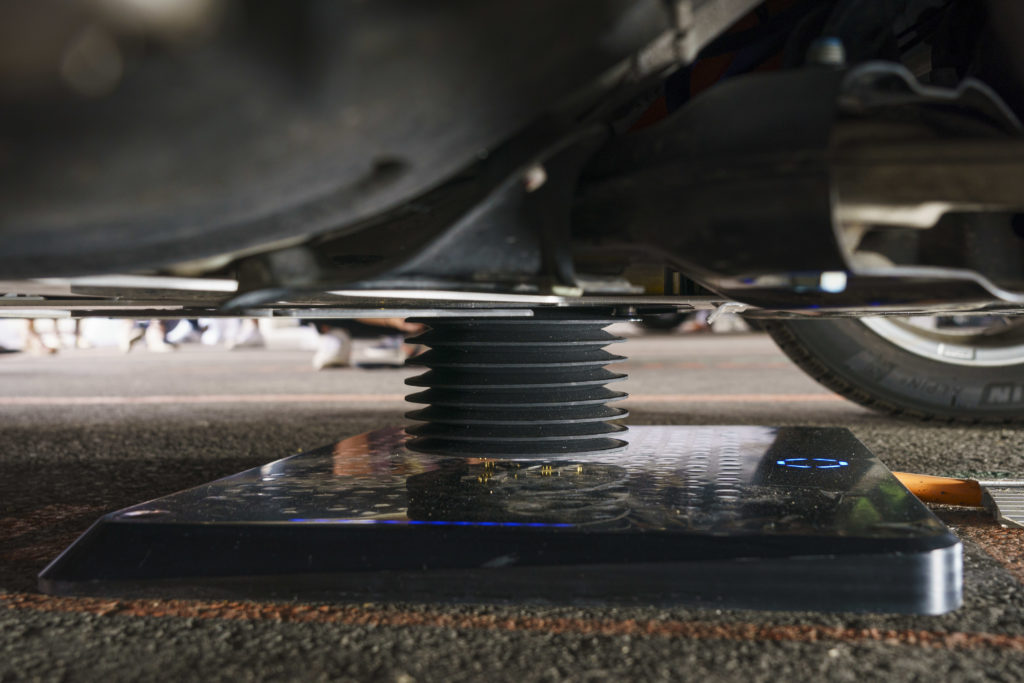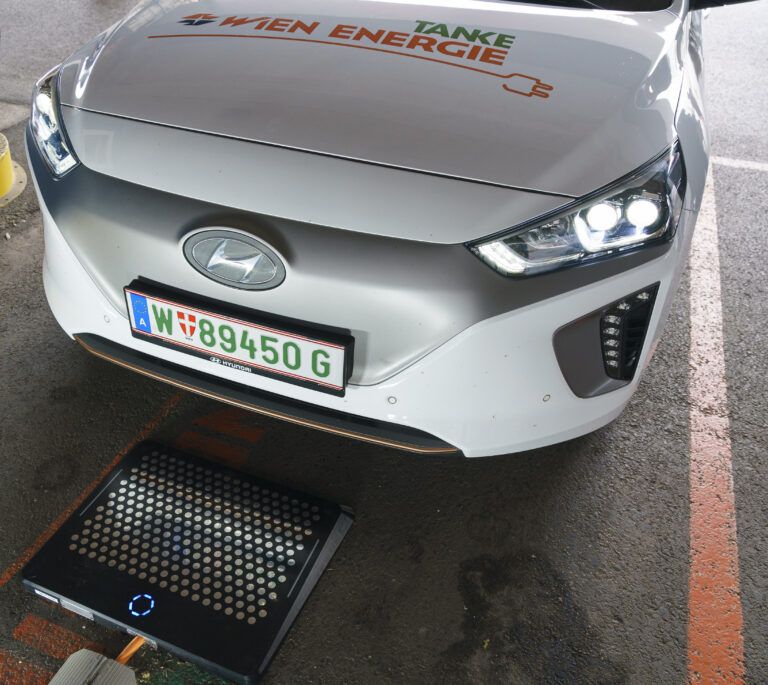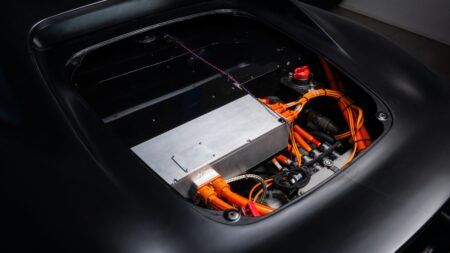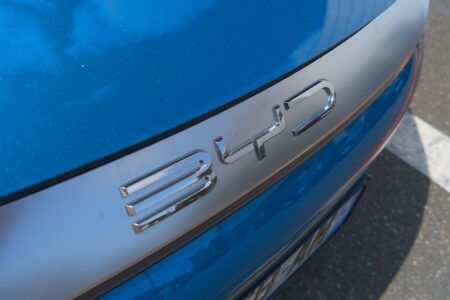Starting in 2025, only taxis with emission-free drive systems will be permitted in Austria, which is seeing Vienna and Graz increasingly shifting to eTaxis. To support this, automated conductive charging technology is being rolled out to make charging more efficient.
Within the eTaxi Austria project in Vienna and Graz, a total of 10 taxi stands and 66 vehicles will be retrofitted with Matrix Charging, the automated conductive charging technology developed by Easelink, over the next two years.
Instead of plugging an electric car into the charging point with a cable, these vehicles are equipped with a connector on the underbody can be connected to a charging plate at the taxi stand with the push of a button. The taxis are automatically charged, without the driver even having to leave the vehicle.

eTaxi Austria is the largest eTaxi project to date for automated charging directly at the taxi stands and the first to one with the application of a highly efficient conductive charging technology in eTaxi operations. The two vehicle types being used in the project support charging at 11 kW AC, which is being implemented as part of the eTaxi Austria project. Matrix Charging will subsequently support up to 22 kW AC and 100 kW DC at
800 volts. “As an automobile manufacturer-independent technology, Matrix Charging can already be retrofitted into most of the electric vehicles available on the market today. The charging pads installed at the parking space are robust and maintenance-free and can be installed in both in public spaces and private garages,” said Hermann Stockinger, founder and CEO of Easelink.
“For the electrification of taxi fleets, the automation of charging at the stand is crucial. This can only be achieved with a robust charging technology that can be integrated flush and thus barrier-free into the roads. Matrix Charging meets these requirements and offers high efficiency through the conductive connection. Due to the decentralized design of the charging infrastructure and a high connection time of the vehicles with the charging points, a grid-serving integration into the urban power grid can be achieved,” said Paul Gredler Oxenbauer, group manager charging solutions from Wien Energie.
The implementation of charging infrastructure with Matrix Charging offers extensive advantages. By eliminating bulky charging stations and cables, the charging infrastructure can be rolled out in densely built-up areas without requiring additional space.
The eTaxi Austria project in Vienna and Graz is being implemented by a project consortium. The core team consists of the Economic Chambers of Vienna and Styria, Wien Energie and Energie Graz, Easelink GmbH, Grazer Energieagentur, tbw research GesmbH, Taxi 40100 and Taxi 31300 as well as vibe moves you and Quintessenz Organisationsberatung. The motor club ÖAMTC as well as Hyundai are also participating in the project.
The project is being funded by the Climate and Energy Fund as part of the “Zero Emission Mobility Implementation” program. It will last until mid-2024 and should serve as the basis for further mobility transformations.





